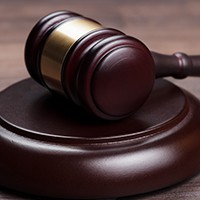Last updated: March 17 2015
Court Concludes That Testator Accidently Burned Will

We all make mistakes, but what are the chances of accidently setting your original Will alight without the intention of revoking it?
That’s what the New Brunswick Court of Queen’s Bench recently held in Barry v. Estabrooks Estate.
Barry v. Estabrooks Estate (2014) NBQB 264
Although each province has slightly different Wills legislation, there is a common law presumption applicable in each jurisdiction that if a properly executed Will was last traced to the testator and is not found upon his death, that the testator destroyed it with the intention of revoking it. That presumption is rebuttable however, and in Barry v. Estabrooks the defendants successfully rebutted it.
The testator had five daughters. According to the Will that was made in 2001, the testator intended to make a bequest of $40,000 each to two daughters and no provision for the other three. The residue of his estate was to go to his nieces.
The evidence was that the testator brought home his safety deposit box in 2009 or 2010 so that he could organize its contents. The Court also heard the testator’s favourite method of disposing of unwanted documents was to burn them. Shortly after bringing his safety deposit box home, the testator burned a pile of documents, including the original 2001 Will. According to section 15(d) of the Wills Act (NB), a will is revoked if it is burned by “the testator or by some person in his presence and by his direction with the intention of revoking it”. The issue before the Court therefore was whether the testator burned the Will intentionally.
In determining whether the presumption of revocation has been overcome, the Court often takes the following into consideration:
- Whether the terms of the Will were reasonable.
- Whether the testator continued to have good relationships with the beneficiaries in the copy of the Will up to the date of death.
- The nature and character of the deceased in taking care of personal effects.
- Whether there were any dispositions of property that support or contradict the terms of the copy sought to be probated.
- Statements made by the testator that confirm or contradict the terms of distribution set out in the Will.
- Whether the testator was of the character to store valuable papers, and whether the testator had a safe place to store the papers.
- Whether there is evidence that the testator understood the consequences of not having a Will, and the effects of intestacy.
- Whether the testator made statements to the effect that he had a Will subsequent to when he purportedly destroyed his Will.
The Court was persuaded that the testator did not intend to revoke the Will, but rather burnt it by accident, because the distribution of his estate was reasonable and based upon the evidence of the relationships he had with the beneficiaries, was consistent with his previous testamentary intentions. The Court found that the testator had knowledge that there was a copy of the Will and that his character, combined with the aforementioned circumstances, supported the conclusion that he did not intend to die intestate. Further, a friend of the testator told the Court that the testator informed him that he had burned the Will accidently.
Barry v. Estabrooks Estate is a good example of successfully rebutting the presumption of revocation of a Will and should be canvassed by anyone contemplating a similar endeavour.

